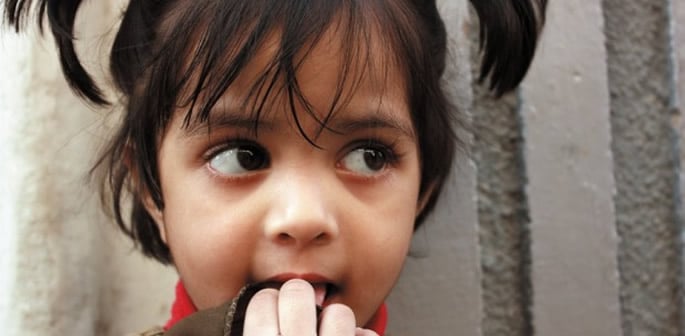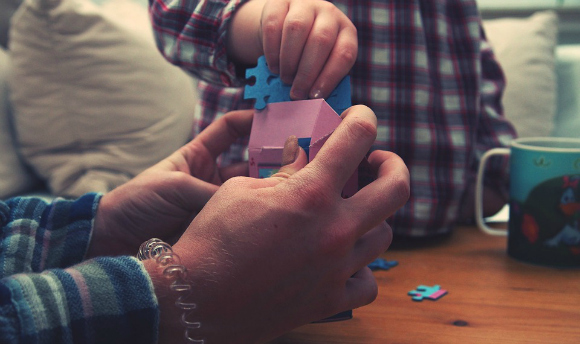2,660 children [in care] come from an Asian or British Asian background
Imagine taking a stranger’s child into your home.
Sitting them at your dinner table, feeding them alongside your own children, and providing them with support and comforts they may not otherwise be used to.
Now, imagine doing this on a frequent basis, a different child every time, or even multiple children together.
Each child has very separate needs and wants, and depends on you for care; this is the world of fostering.
Different to adoption, fostering offers vulnerable children a safe environment to live, either with a carer or a family.
This is usually away from their biological parents, who, for whatever reason, are unable to look after them.
A temporary arrangement, fostering can last from a few days to several years, and normally only until the age of 21.
While the legal responsibility of the child remains with the local authority, foster carers are responsible for day-to-day care, including taking them to school, going for health check-ups and extracurricular activities.
Misconceptions about Fostering
Currently, there are 69,540 ‘looked after children’ in England (as of March 31, 2015). 75 per cent of these are in foster care.
2,660 children come from an Asian or British Asian background.
With around 9,000 more children expected to go into care in 2016 alone, the distinct lack of British Asian foster carers has not gone unnoticed.
This might seem unusual for a culture that traditionally enjoys a large family structure.
The idea of cousins, siblings, nephews, nieces and many different children living rapturously under one roof is not uncommon or unusual.
But inviting an unfamiliar guest into your home to live, can cause some hesitations among Asians, and for varying reasons.
The most obvious being the cultural differences at play. A white vulnerable child in an Asian household will be in more unfamiliar territory than they would be in a white household.
But aside from food, language and dress, cultural variances can stem much deeper. One foster carer, 65-year-old Asghar says: “Asian family systems, traditionally, are very conservative.
“If you want to foster in the UK, you have to be willing to accept a child that has been born here and is from any kind of background.
“Social workers and the care system require you to bring the child up as any other Western child is, so that their cultural needs are met,” explains Asghar.
For this reason, differences in parenting practices can also become problematic if they are not in line with Western traditions.
For instance, you could be the carer of an English teenage girl and be ready to provide them with a normal upbringing in Western society, whether that includes boyfriends or late-night parties – something which the traditional Asian parent is not hardwired to permit:
“As a foster carer, you cannot deny a child this, as this is the norm they are part of. But it can be difficult when you are bringing up your own children in the same environment,” Asghar adds.
In a majority of cases, however, carers and children are matched on their suitability with each other. And sometimes Asian children in care are sent to families of a similar cultural background.
40-year-old Kiran looks after four siblings who are also from an Indian background. She has been fostering them alongside her own children for the last 12 years:
“I got them really young, when they were age 1, 2, 4 and 6. Because I had my own kids who were a similar age, it was easier to look after them altogether, taking them to school, after school activities and everything.
“Because all my extended family live close by, they’ve slotted right in, and they participate in everything including festivals and big occasions.”
Understanding a Child’s Needs
For some elder Asian families, language barriers can be a significant problem.
Those who have poor understanding of English cannot communicate with or understand the needs of a looked after child:
“In the majority of calls we get from our social worker about a new placement, the children are described as ‘emotionally unstable’,” says Asghar.
Many of the children going into care have undergone difficult experiences in their childhood.
They can be struggling to cope with separation, loss, abuse, neglect, or even adjusting to the idea of care from a stranger.
The care they may need can be very specific to their needs. Aside from physical support (i.e. a safe place to live), psychological and mental support is just as important.
Some children as young as 4 can feel detachment from their mother or father very keenly, causing them to lash out. And dealing with them in this demanding state can be a challenge.
One foster carer, Sameera, recalls 10-year-old Alia, who struggled to fit into a new and unfamiliar environment:
“Her mother was depressed and could no longer look after her. When we took her in, I used to make her breakfast in the morning and after eating, she would put bits of toast in her pocket when we weren’t looking.
“She hid them in her cupboard and behind the wardrobe in her bedroom. Later the social worker told us that when she was at her own home, they regularly ran out of food. So it’s as though she developed a survival instinct to save food in case it happened again.”
Many foster carers find that they have to be extremely careful when bringing up children who come from difficult backgrounds, especially if they are not used to a ‘normal’ upbringing.
Again traditional Asian parents who are used to exerting control over their own children, find themselves in a new situation having to deal with extreme behavioural problems. Particularly over local children of any age who are not used to discipline.
Here, tolerance and patience become essential to parenting, and it’s not dissimilar to a classroom scenario, only at home.
Nadia explains: “Sometimes a child can be easily managed. They eventually adjust and become better behaved over time.
“However, there are some who become rebellious due to their past suffering. And they have developed serious trust issues.”
This distrust can be towards social workers and foster carers alike. And if biological parents are still in the picture then understanding why they have been separated in the first place can be extremely traumatic for a young child.
Being a Foster Carer is both Challenging and Rewarding
Understandably, becoming a foster carer is a strict and lengthy process. Normally, it can take 6 to 9 months to go through the selection procedure.
During this time, the local authority or charity will assess each family and check their suitability, lifestyle habits, living arrangements, and commitments among other things:
“They do ask a lot of questions because they need to find out everything about you. Sometimes Asians like to keep their home life or private life to themselves. So they can be put off from considering fostering,” says Jas.
Additionally, the responsibility for children in care continues 24 hours a day, 7 days a week. Daily reports are written by carers to monitor the health and well-being of the child, and regular meetings with social workers and schools are compulsory.
This can mean very little privacy for carers themselves, restricting their own social lives. As Kiran explains:
“When I took in more children, I decided to leave my job and become a full-time carer because it was easier to manage. But I love that I’m able to spend more time with them and my own children.”
Aside from the pressure and stress, helping an abandoned or neglected child is fulfilling in its own right:
“I’ve been caring for Harpreet ever since she was a baby. She has a disability, and when she was born, her mother didn’t want her. I saw her at the hospital and applied to be her carer,” says Simran.
British Asians and Fostering
Children’s charity, Barnardo’s have voiced a ‘desperate shortage’ of British Asian foster carers over the last few years. Particularly in cities with large Asian populations, and which are seeing a huge influx of underage asylum seekers who need immediate care.
The lack of British Asians highlights the misconceptions that continue to exist around fostering. Many don’t realise that fostering is an actual profession, where carers are paid to look after a child, up to £400 a week per child.
The financial security it offers can be attractive especially for young parents bringing up their own kids and want to stay at home.
But no doubt, taking in a stranger’s child and offering them shelter and safety is a unique profession to have.
And the opportunity to show a neglected child kindness and give them some kind of temporary glimpse into what a normal childhood can be, has its own rewards.




































































